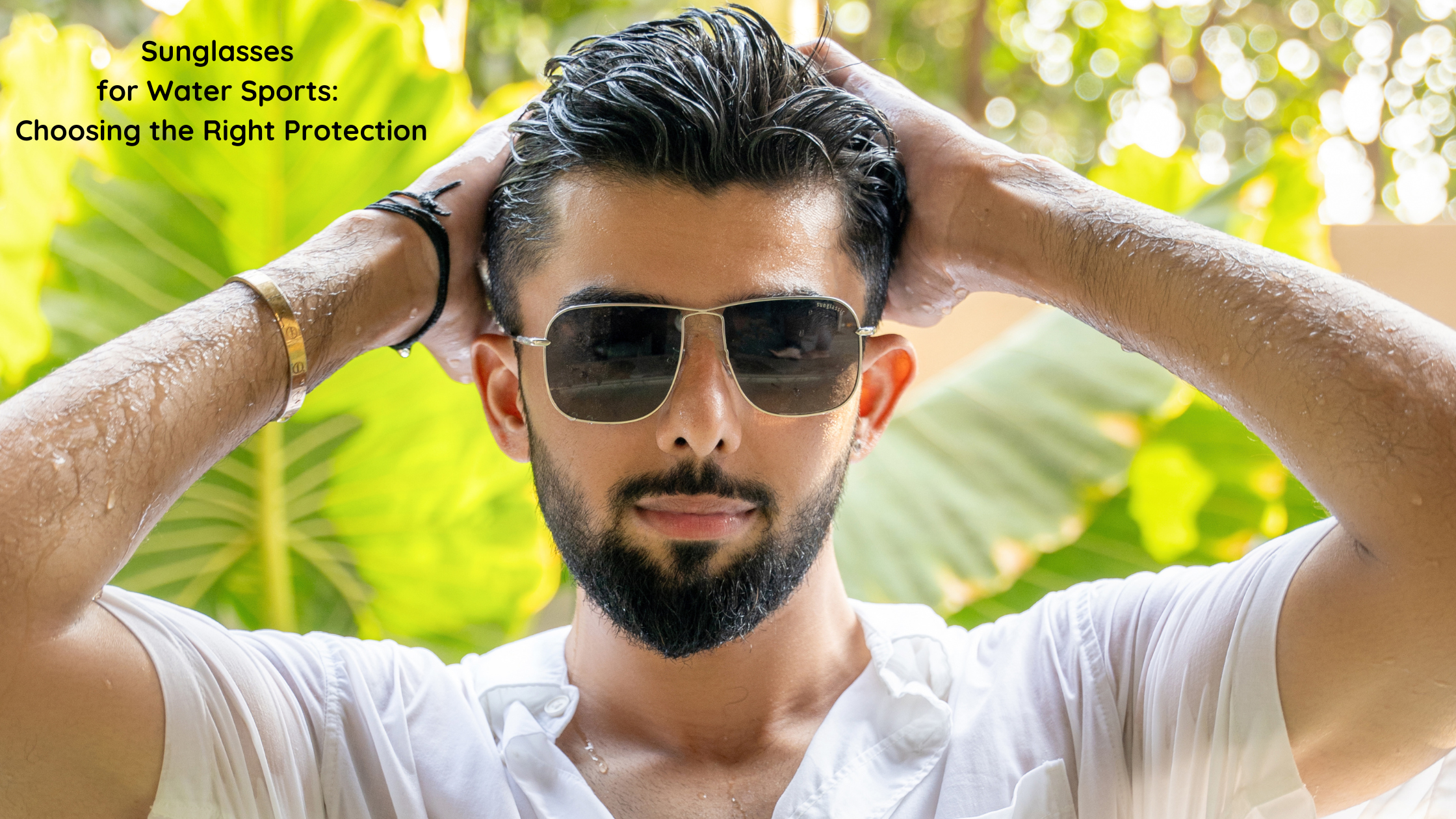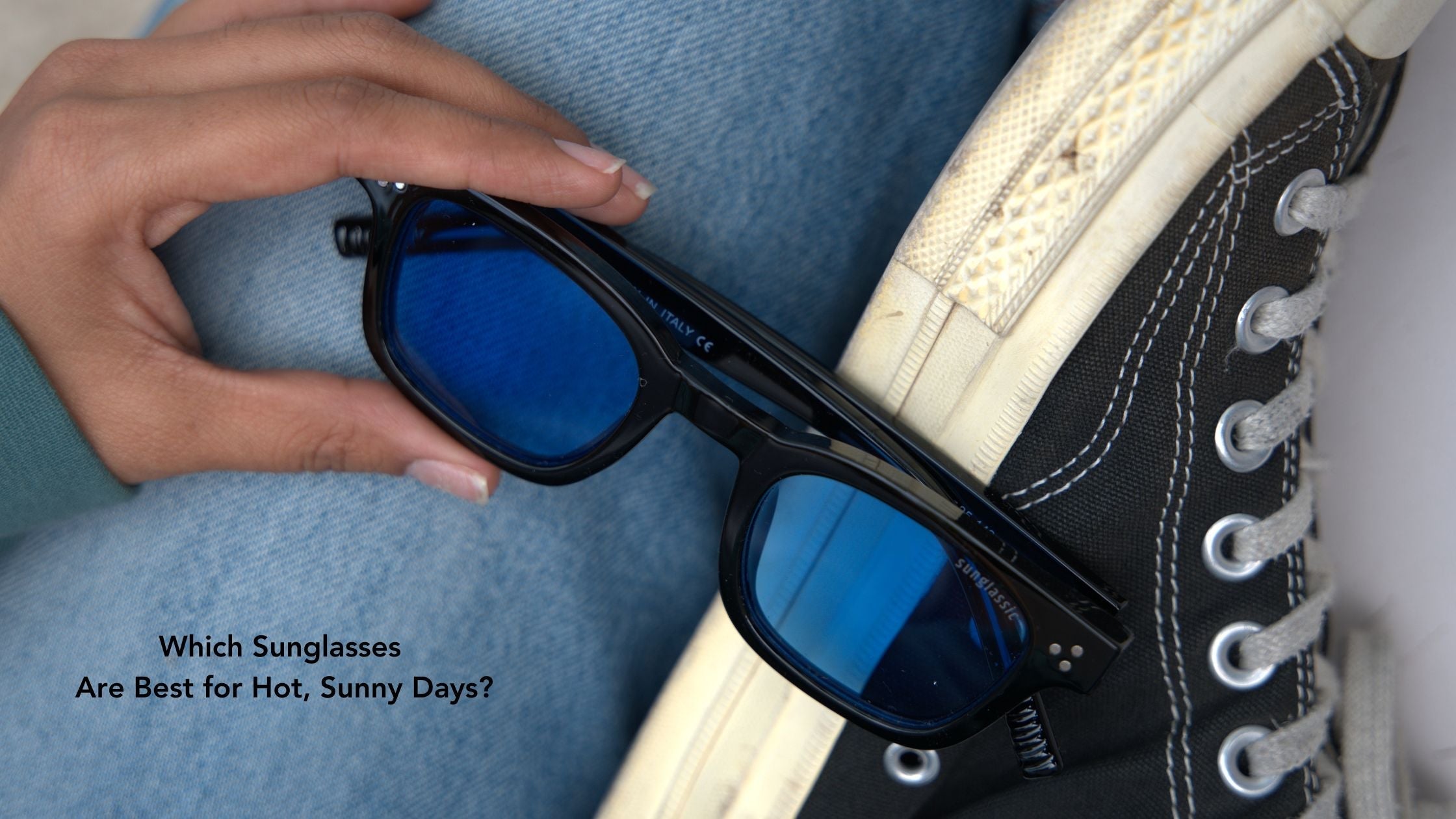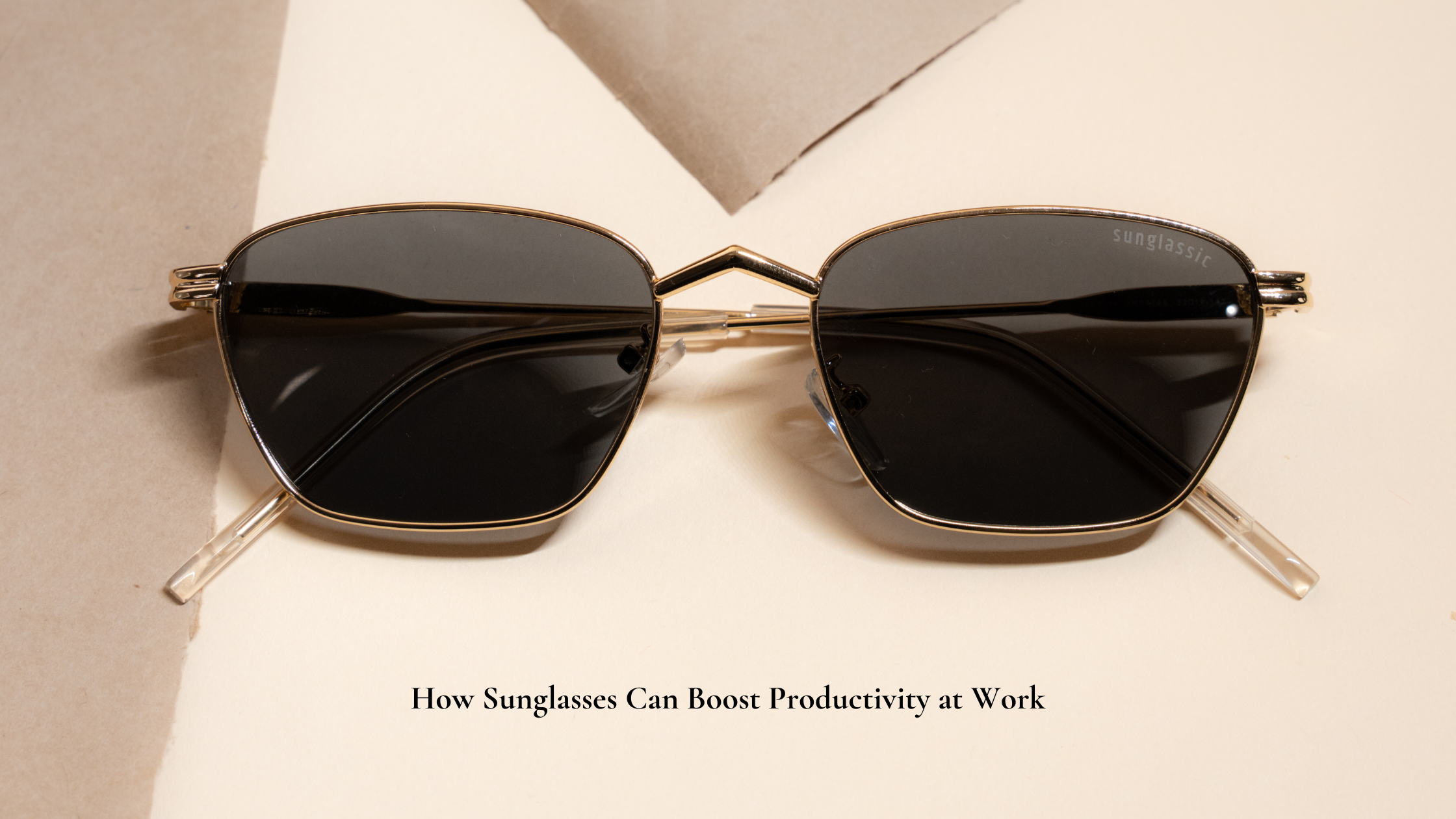
Sunglasses for Water Sports: Choosing the Right Protection
Whether you're jet skiing, paddleboarding, kayaking, or simply relaxing on a boat, your eyes need the best protection when you're on the water. Regular sunglasses may not be enough. The glare from the water, combined with intense UV rays, can cause serious strain and long-term damage to your eyes. That's why choosing the right sunglasses for water sports is crucial. And at the heart of it all are polarized sunglasses.
In this blog, we'll cover everything you need to know about choosing the right sunglasses for water sports, why polarized sunglasses are essential, how they differ from UV protection, common myths, and must-know facts to keep your eyes safe and comfortable.
Why Polarized Sunglasses Are a Must for Water Sports
When light reflects off flat surfaces like water, it creates glare that can be blinding and uncomfortable. This intense reflection is not just a nuisance but a hazard, especially if you're moving at high speed or need clear vision to navigate.
Polarized sunglasses come with a special filter that blocks this horizontal light, reducing glare significantly. This means clearer vision, less eye strain, and more safety while you're out on the water. Unlike regular sunglasses, polarized ones enhance contrast and improve visual clarity, making them ideal for water sports.
What Polarized Sunglasses Do (And What They Don’t)
There’s often confusion between polarized sunglasses and UV-protective sunglasses. Here's the deal:
-
Polarized sunglasses reduce glare by blocking reflected light.
-
UV protection blocks ultraviolet radiation from entering your eyes.
Important: Polarized sunglasses do not automatically offer UV protection, and vice versa. Some sunglasses may have UV-blocking features without being polarized, and some may be polarized without offering full UV protection.
Benefits of Polarized Sunglasses for Water Sports
1. Reduced Glare: Glare from water can be overwhelming. Polarized sunglasses filter out this glare, giving you clear and comfortable vision.
2. Better Visual Clarity: With reduced glare comes enhanced contrast and sharper vision. You’ll be able to see under the water surface, spot objects more easily, and react faster.
3. Less Eye Strain: Spending hours on the water without proper eye protection leads to squinting and fatigue. Polarized sunglasses help you relax your eyes and enjoy the experience.
4. Improved Safety: Whether you're steering a jet ski or rowing a kayak, better vision means better decision-making and fewer accidents.
Popular Water Sports That Need Polarized Sunglasses
-
Fishing: Spot fish beneath the surface with better contrast.
-
Kayaking & Canoeing: Navigate through currents and avoid obstacles with clearer vision.
-
Jet Skiing: High speeds require fast visual processing. Polarized sunglasses help eliminate distractions.
-
Surfing: Identify wave patterns more clearly and protect your eyes during bright sessions.
-
Boating & Sailing: Stay focused on your path without being blinded by water reflections.
Common Myths About Polarized Sunglasses
Let’s bust some common myths that often confuse buyers:
Myth 1: All sunglasses are polarized.
Fact: Many sunglasses are just tinted lenses that don't offer true glare reduction. Always check if they're labeled as polarized.
Myth 2: Polarized lenses automatically block UV rays.
Fact: Polarization and UV protection are different technologies. You need both for complete protection.
Myth 3: You don't need polarized sunglasses on cloudy days.
Fact: Water glare exists even when the sun is hidden. Polarized sunglasses are useful in overcast conditions too.
Myth 4: Polarized lenses distort your vision.
Fact: Quality polarized sunglasses improve clarity. Cheap knockoffs might cause distortion.
Key Features to Look for in Polarized Sunglasses for Water Sports
1. 100% UV Protection
Make sure the sunglasses block 100% of UVA and UVB rays. Look for labels like "UV400."
2. Hydrophobic and Oleophobic Coating
These coatings repel water and oils, preventing smudges and water spots.
3. Floatable Frames
Accidents happen. Floatable frames keep your sunglasses from sinking.
Real-Life Facts About Polarized Sunglasses
-
Fact: The World Health Organization states that up to 20% of cataract cases may be caused or worsened by UV exposure.
-
Fact: Polarized lenses can reduce glare by up to 90% compared to non-polarized lenses.
-
Fact: Eyes are up to 10x more sensitive to UV rays when exposed on the water due to reflective surfaces.
Can You Test if Sunglasses Are Polarized?
Yes! Here's a quick test:
-
Hold the sunglasses in front of a reflective surface (like water or glass).
-
Rotate them 90 degrees.
-
If the glare fades or disappears, the lenses are polarized.
You can also look at a digital screen through the lens and tilt your head. If the screen darkens or changes color, the sunglasses are polarized.
Conclusion: Choose Smart. Choose Polarized.
If you're into water sports, there's no question—polarized sunglasses are the smart choice. They give you unmatched glare reduction, better clarity, and comfort that regular sunglasses simply can't provide. Just remember that polarization is not the same as UV protection. The best sunglasses for water sports offer both.
At Sunglassic.com, we blend style with safety. Our collection of high-performance polarized sunglasses is designed to keep your eyes protected while looking effortlessly cool. Explore our range today and see the difference polarized lenses can make on your next water adventure.
SHOP BY SHAPE
WORN BY OVER 200.000 PEOPLE WORLDWIDE








Leave a comment
This site is protected by hCaptcha and the hCaptcha Privacy Policy and Terms of Service apply.